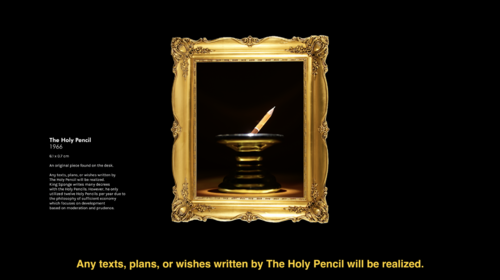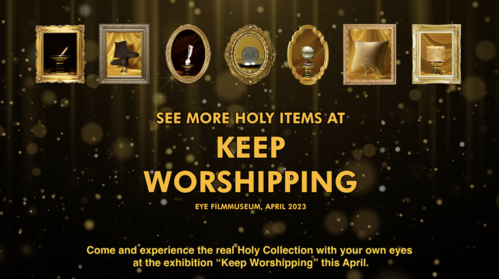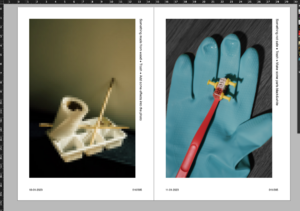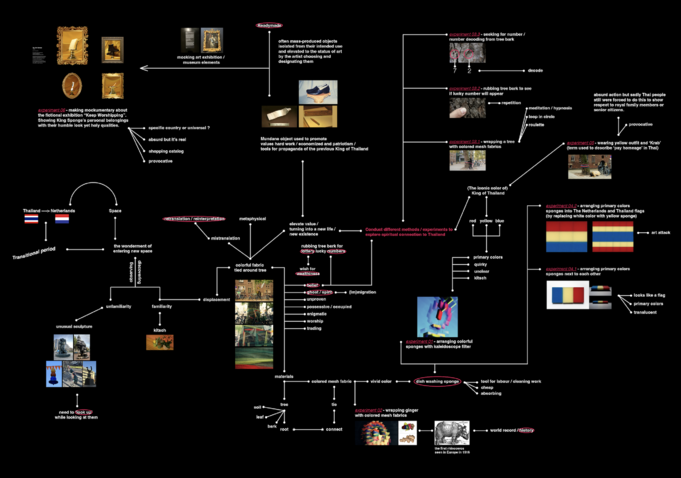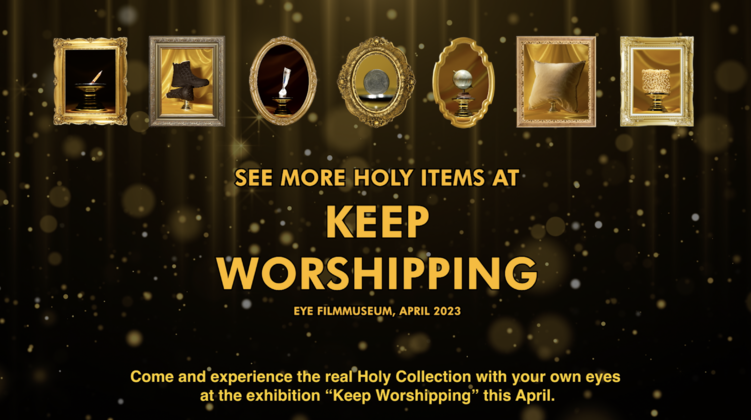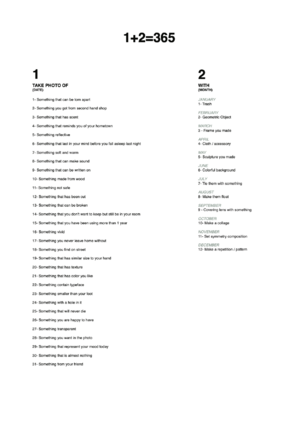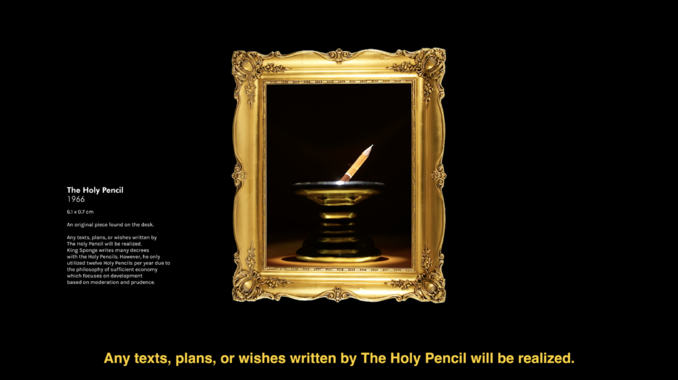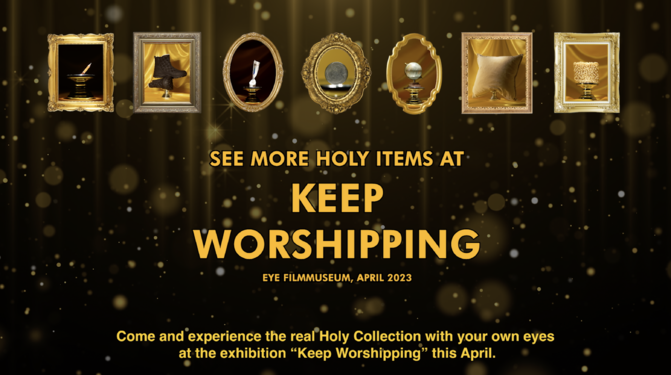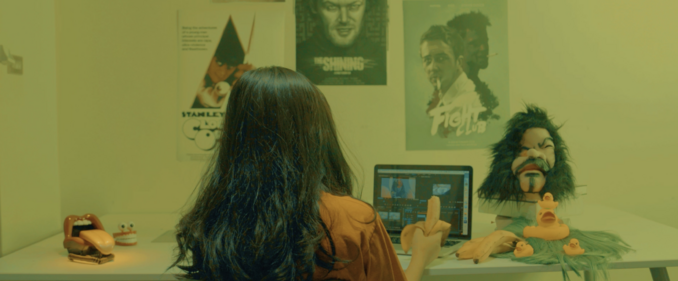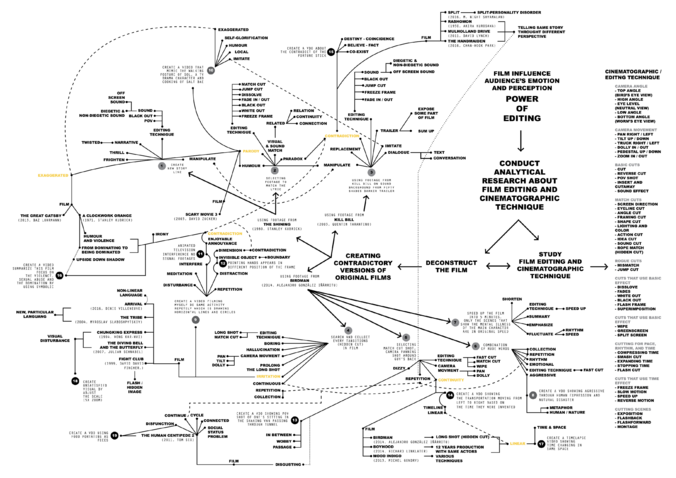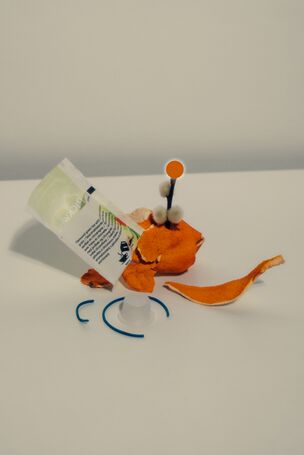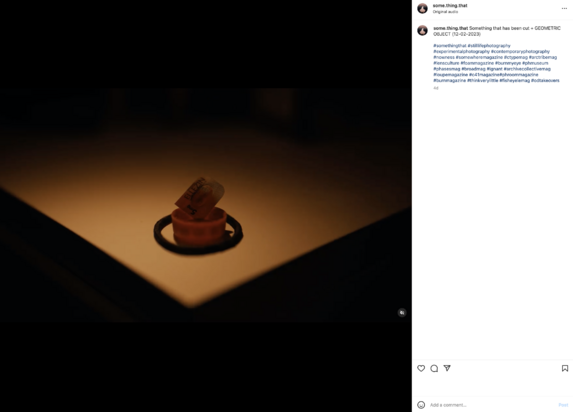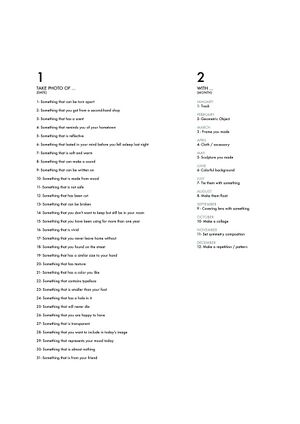Text on Practice - Te
*** THE LATEST VERSION IS AT THE BOTTOM OF THIS PAGE. ***
FIRST DRAFT
My most recent video work called “The Holy Sponge” is a short mockumentary for the EYE project where I set up the trailer for the fictional exhibition “Keep Worshiping”.
The film begins with a very brief introduction of the King Sponge of the coconut shell planet, who is the owner of every item that is going to be shown in the exhibition. Followed by the various holy items that King Sponge used to help develop the Coconut Shell Planet.
The selection of household items is based on personal belongings of the previous king of Thailand that were released by Thai official media.
For example, a picture of his pencils which are well used, and toothpaste tubes which are really well squeezed, his shoe which is humble. All of those items are taken as a picture and were used as evidence supporting the King’s philosophy of sufficiency economy. Some things that are very humble were elevated into a high state.
I am amazed by how the media manipulates how people perceive the objects and it also makes me curious about how effective new meanings or stories were added into each object.
My script is also inspired by the story behind each item that has been told.
For instance, the king only utilized twelve Holy Pencils per year due to the philosophy of sufficient economy which focuses on development based on moderation and prudence.
In the production process, I filmed the items that seem to be normal items that could be found in every house or supermarket with the moving golden yellow fabric as the background. I shoot in high frame rate to make it more gorgeous.
All items are put into the golden frames in the editing process to raise more value.
With the animated particles overlayed as the video background in some shots.
Aside from the golden frame, I showed the written text describing holy information in the format of the museum labels. By doing that, It helps the audience feel like they are in the actual exhibition or museum. Those visual elements add a sense of humor to the narration.
In the past I did a lot of commercial product photography which mainly focused on the superficial look, but in this work it is more related to the history of the object which I wasn’t concerned about than much in the past.
Since object shooting is my obsession. As well as my attempt to take a photo every day.
I got inspiration from the Scratch Directory session, So I have been setting the rule for shooting on each date and also monthly theme. For example, the first of every month, I will take a photo of something that can be torn apart. And in January I will take photos of trash. That means on the first of January I will set a photoshoot of something that can be torn apart with trash. I believe it’s a good way of generating new images.
As I feel like lately I haven’t produced a lot of work, so if I can set the rule to shoot something very fast every day. At the end of the year I’m supposed to have 365 photos with different concepts.
I think seeing the results in the big picture might show some connection of each photo and even inspire me to develop this work into the next level.
08-02-2023 Revise.
In my working practice to develop artwork, I am accustomed to creating a mind map by writing down the terms that inspire me at the starting point. Gathering and expanding the terms, write them down. This practice helps me see the big picture and it also helps highlight the connections between each direction I have in my work.
I recently produced a short mockumentary called “The Holy Sponge”. The film showcases a fictional exhibition “Keep Worshiping” and highlights the story of the King Sponge of the coconut shell planet, who owns all the items displayed in the exhibition.
The film begins with a very brief introduction of the King Sponge of the coconut shell planet. Followed by the various holy items that King Sponge used to help develop the Coconut Shell Planet. The household items in the film were selected based on personal belongings of the previous king of Thailand that were released by Thai official media. The objects were chosen to reflect the king's philosophy of sufficiency economy and to demonstrate how media can manipulate people's perceptions of objects.
I am amazed by how the media manipulates the way people perceive the objects and it also makes me curious about how effective new meanings or stories were added into each object. At this point, it reminds me of the Fountain by Marcel Duchamp. He was one of the very first artists who brought manufactured objects that he called ‘Readymade’ to claim as the art piece as he believed anything could be a work of art. That leads me to excavate deeper into the idea of presenting mundane objects with Holy quality which you cannot perceive with your eyes but you have to open your mind and believe in them.
The script was inspired by the stories behind each item, such as the king only using twelve (Holy) Pencils per year and squeezed (Holy) toothbrush tubes so well that they cannot produce more toothbrushes.
The production involved filming the objects with a moving golden yellow fabric background and high frame rate, then editing the items into golden frames with particle animation and museum label-style text for added humor.
In Thailand, not looking up to the monarchy and its members is not a choice.
The King held power and control over people for centuries. No matter how much taxpayer money they spend on extravagant items or how bad behavior they have done, Thai citizens have to worship and love them without question. To speak out or criticize their behavior is against the Lèse-majesté law (Section 112 of the Thai Criminal Code). There are a number of Thai activists who were put into jail over years for online posts, criticizing, or mocking the monarchy. It might sound absurd and implausible for a democratic country. However, in Thailand, there are instances where such occurrences are taking place in reality. If you are Thai living and producing political work in Thailand, to avoid the arrest, you have to use the metaphor and not project your point of view directly.
In regards to official materials related to the King, it is important to maintain a dignified and flattering portrayal. This serves to enhance and exalt their image in the eyes of the public. To subvert that idea, I have created the work regarding the King in a satirical and humorous perspective which means I have created the work that could lead me to jail if I released it in my motherland. I strongly hope that Thailand will one day reach a state where individuals are able to freely and openly express their opinions and views on the monarchy and its power without fear of repercussions.
This film corresponds to the idea of the meta-cinema where it is informing the audience that they are watching something that is not real. But In order to enjoy the film, they have to believe in what they see. This also showed in my previous experimental film called “Turning Tide and Cataract”. The main point of this film is to depict the terms “Continuity”, “Disturbance” and “Exaggeration” that I got from my analytical research about film editing and cinematography techniques.
Since I’m fascinated by creating both moving and still images. In my previous commercial product photography, it’s primarily focused on superficial appearance. However, The Holy Sponge delves into the history and meaning of the objects.
I am interested in exploring mundane objects and still life photography. As well as my attempt to take a photo every day based on a monthly theme, inspired by the “Scratch Directory” session where individuals will set up the rule for starting any action. Plus with the idea of “Exquisite corpse” which is a game where players take turns adding writing or drawing to a sheet of paper, which is then folded to hide their contribution before being passed to the next player. So I gather the terms (starting with something that..) from asking different people and set up the rule. For example, the first of every month, I will take a photo of something that can be torn apart. And in January I will take photos of trash. That means on the first of January I will set a photoshoot of something that can be torn apart with trash. I believe it’s a good way of generating new images. And it challenges me to produce new images and improve my still life shooting and lighting skills.
This disciplinary practice is also inspired by from performance artist, Teching Hsieh, where he took a self-portrait every hour for an entire year.
I aim to produce work consistently and hope that by the end of the year, I will have 365 photos with different concepts that might reveal connections and inspire me to take this project to the next level.
Plan
- Find writing structure.
- Develop consistency in writing.
- Expand more on relation between previous project and current one.
- Elaborate more on the urge for making film regarding politic background.
- Explain more on previous film.
- Give more details on how each work from the reference artists inspire my works.
- Write a relation to a larger context*
- Reading reference?
22 FEB 2023 VERSION
Displacement and the attempt to relive my life in my hometown.
I am currently studying Lens-based Media in the Netherlands, which is situated over 9,000 kilometers away from my home country of Thailand. Distance is not just physical. It's also evident in how people from different cultures believe and interact, as I've learned through my experiences of displacement. While exploring new things, I encountered a familiar symbol that served as the inspiration for my EYE project. In front of the Willem de Kooning academy, there was a tree adorned with colored mesh that reminded me of a spiritual belief in my home country. In Thailand, it is believed that spirits dwell in massive, old trees with unique shapes. As a sign of respect, people tie colored mesh around the trees and even rub the bark, hoping to find lucky lottery numbers. I agree with what Apichatpong Weerasethakul, a Thai filmmaker, once said in the Guardian interview that “my country is run by superstition”. This motivated me to explore alternative experiments of spiritually connecting with my motherland.
Monarchy, Propaganda, Power, Violence and Subversion
"During a thematic seminar "Is it possible to talk about power and violence without showing their depictions?" led by Cihad, I was inspired by the following quote from “Visibility is a complex system of permission and prohibition, of presence and absence. It always contains apparitions and often obligates blindness.”(Saybasil, 2008, p. 302) This inspired me to create artwork addressing the role and power dynamics of the Thai monarchy.
King Rama IX, the former monarch of Thailand and the world’s longest sitting monarch, has wielded power and control over Thai people for more than seventy years. He was often depicted as a god-like figure and the father of all Thai citizens. This portrayal was reinforced through official media channels, which frequently featured images of the King's humble possessions, such as well-used pencils, well-squeezed toothpaste tubes, and ordinary shoes. The purpose of this propaganda was to promote the values of hard work and patriotism. Maintaining a dignified and flattering portrayal has been crucial in elevating the public's perception of the monarchy. Although the current king has been unable to establish a positive public image since his father's reign almost seven years ago, Thai citizens are still obligated to show respect and deference to the monarchy and its members. Criticizing or speaking out against their actions is considered a violation of the Lèse-majesté law (Section 112 of the Thai Criminal Code), with many activists having been jailed for online posts that mocked or criticized the monarchy.
The experience of living in a suppressive society has instilled in me a desire to create art that subverts the power and challenges the status quo. Ai Weiwei's "Study of Perspective (1995-2011)" portrays the artist giving the middle finger to historical buildings, landmarks, and public spaces that have been transformed into symbols of power. This inspired me to critically examine the symbolism behind historical buildings and landmarks. I am fascinated by the media's ability to manipulate object perception and Marcel Duchamp's 'Readymade' art, which presents mass-produced objects as art. This has led me to explore the concept of presenting mundane objects with a sense of holiness, which requires a shift in mindset to appreciate.
I conducted experiments utilizing ordinary objects, some of which are connected to the personal belongings of the King. The sponge was chosen as the primary object due to its prior usage in experimentation and symbolic association with poverty. Additionally, its yellow color was specifically selected to correspond with the iconic color of the Thai King.
Finally, it led me to create a 3.46 minute color mockumentary film titled “The Holy Sponge”. The film, shot in digital format, features a fictional exhibition trailer for “Keep Worshiping” that will be held at the EYE filmmuseum in April 2023. The exhibition highlights the holy qualities of personal items that belonged to the King Sponge of the Coconut Shell Planet.
The film begins with a very brief introduction of him. Followed by the various holy items that King Sponge used to help develop his land. The household items in the film were selected based on personal belongings of the previous king of Thailand that were released by Thai official media to reflect the king's philosophy of sufficiency economy.
The script was inspired by the stories behind iconic items used by the previous king of Thailand, such as his limited use of twelve pencils per year and his ability to effectively squeeze toothbrush tubes to their fullest potential. To correspond with the Cliché idea of the king of Thailand as a god, I chose to add aspects of fairy tale and surrealism into the narration of the script. For instance, any texts, plans, or wishes written by The Holy pencil will become real and the Holy Money that can automatically duplicate itself at midnight.
The production process involved filming selected objects on a shiny silver stand against a moving golden-yellow fabric background, utilizing a high frame rate to achieve a surreal and magnificent effect. The filming approach was intended to blend elements of commercial packshot and object exhibition, with the aim of elevating the value of mundane objects.
In the post-production process, the items were edited into golden frames to convey their high value and displayed with museum-style labeling to enhance the exhibition concept. Particle animation was used in some sequences to create a luxurious feel, while cartoon sound effects were also added to inject a sense of humor. The narration was done by a female voiceover using a Thai AI voice generator to create the effect of propaganda and the overwhelming amount of information frequently distributed to the public.
Relation to previous practise
The concept of the Holy Sponge aligns with the notion of "meta-cinema" where it makes the audience aware that they are watching a work of art that is a representation of reality. However, to fully appreciate the film, the audience must suspend disbelief and embrace what they witness on screen. Meta-cinema encourages the viewer to question their own perception of reality and the ways in which media can influence it. The same technique was also demonstrated in my previous experimental film titled “Turning Tide and Cataract”, which was my bachelor's thesis project in 2017. A 8.41-minute color film shot in digital format with an aspect ratio of 16:9. The film, which has no dialogue, follows a senior female student spending her day editing a project at home, only to be interrupted by the discovery of a mysterious suitcase. Divided into three parts, the film explores the concepts of "Continuity," "Disturbance," and "Exaggeration" in an ironic and subversive manner. Through the use of various filmmaking techniques, including Mise-en-scene, editing, and sound, I aimed to challenge the viewer's expectations and expand their imagination. My process involved analyzing award-winning and recommended films, conducting research on film editing and cinematography techniques, and creating a mind map to document the terms that inspire me as a starting point and expanding upon them. This writing practice enables me to visualize my thought process, gain an overview of my work, and identify connections between different directions I am exploring.
Ongoing Work
I possess a keen interest in both moving and still images, as evidenced by my prior work in still life photography, which typically involves arranging ordinary objects in visually captivating compositions.
I have challenged myself to capture a photograph or short video every day based on a different theme each month. I got the idea from the "Scratch Directory" session from the Reading, Writing, and Research Methodologies Seminar, where people make rules for starting actions.
Additionally, the game "Exquisite Corpse," where people take turns adding to a piece of paper without viewing what others have added, provided further inspiration for a lack of control in selecting subjects.
“Something that” is the new lens-based project that I’m currently working on. Each day, I create a subject to capture that aligns with the monthly theme. For instance, on the first day of each month, I shoot a photo of “something that” can be torn apart. In January, I focused on photographing trash, resulting in a photoshoot where I combined a torn-apart object with garbage.
However, there is still room for further development in this project. Upon recommendation, I became interested in On Kawara's "Today" or "Date Paintings," where he paints the typography of the current date on canvas every day. Kawara's conceptual exploration of the passage of time, the significance of individual days, and the human desire to mark and measure time through visually incorporating the date in his artwork, was fascinating.
Another noteworthy project that explores the theme of time is Tehching Hsieh's "One Year Performance 1980-1981." He used time as a medium of art by committing to a year-long piece. Every hour on the hour, Hsieh punched a time clock and took a photograph of himself, resulting in 8,760 photos that captured the passing of time. The project also aimed to challenge the conventional value systems of the art world and the notion of an artist's labor.
As this project continues to develop, I intend to solidify the concept by incorporating the notion of the passage of time. I have created an Instagram account to document daily still or moving images related to the project. My goal is to establish a routine that allows me to produce unique imagery while enhancing my skills in still-life photography, lighting, and composition.
#Somethingthat #PassageofTime #Everyday #Routine #Disciplinary #StillLife
8 March 2023 VERSION
Displacement and the attempt to relive my life in my hometown.
I am studying Lens-based Media in the Netherlands, which is situated over 9,000 kilometers away from my home country, Thailand. Distance is not just physical. It's also visible in how people from different cultures believe and interact. While exploring new things, I encountered a familiar symbol that inspired my EYE project: a tree adorned with colored meshes that reminded me of a spiritual belief in Thailand. Spirits are believed to dwell in massive, old trees with unique shapes. As a sign of respect, people tie colored meshes around the trees and even rub the bark, hoping to find lucky lottery numbers. I agree with the Thai filmmaker Apichatpong Weerasethakul, who once said in the Guardian interview, "My country is run by superstition." This motivated me to explore different experiments to connect with my motherland spiritually.
During a thematic seminar, "Is it possible to talk about power and violence without showing their depictions?" led by Cihad, I found the following quote "Visibility is a complex system of permission and prohibition, of presence and absence. It always contains apparitions and often obligates blindness." (Saybasil, 2008, p. 302). This encouraged me to create artwork addressing the Thai monarchy's role and power dynamics.
Monarchy, Propaganda, and Attempt to Subvert power.
King Rama IX, the former monarch of Thailand, was depicted as a god-like figure and the father of all Thai citizens. This portrayal was reinforced through official media channels, frequently featuring images of the King's humble possessions and dedication to the country. The purpose of this propaganda was to promote the values of hard work and patriotism. Although the current King has been unable to establish a positive public image since his father's reign almost seven years ago, Thai citizens are still obligated to respect the monarchy and its members. The Thai government has used the Lèse-majesté law, also known as Section 112 of the Thai Criminal Code, as a political weapon to suppress the freedom of speech and expression of Thai citizens. They have jailed many activists for criticizing the monarchy. This mirrors the problematic nature of power in the monarchical state, as Foucault (1975, p. 80) highlighted, "This dysfunction of power was related to a central excess: what might be called the monarchical 'super-power', which identified the right to punish with the personal power of the sovereign." Despite this happening in Thai society, some hyper-royalists still hold unwavering faith in the monarchy's impartiality, prompting the question, ‘Does it make sense to believe and revere something blindly?
The experience of living in a suppressive society has instilled in me a desire to create art that subverts power and challenges the status quo. Ai Weiwei's "Study of Perspective (1995-2011)" portrays the artist giving the middle finger to historical buildings, landmarks, and public spaces that have been transformed into symbols of power. This inspired me to examine the symbolism behind historical buildings and landmarks. I am fascinated by the media's ability to manipulate object perception and Marcel Duchamp's 'Readymade' art, which presents mass-produced objects as art. This has led me to explore the concept of offering mundane objects with a sense of holiness, which requires a shift in mindset to appreciate.
If anything could be art, why can't the cheap sponge? I chose the sponge as the primary object due to its symbolic association with poverty, and its yellow color corresponded to the Thai King's iconic color.
Recent work
Finally, I created a mockumentary film titled "The Holy Sponge." It features a fictional exhibition trailer for "Keep Worshipping" that will be held at the EYE Filmmuseum in April 2023. The exhibition highlights the holy qualities of items that the King Sponge owned and used to develop the Coconut Shell Planet.
The items shown in the film are influenced by the iconic belongings of the previous King of Thailand released by official Thai media to reflect the King's philosophy of the sufficiency economy. As well as the stories behind them also inspired the script, such as his limited use of twelve pencils per year and his ability to squeeze toothbrush tubes to their fullest potential effectively. To parody the cliché idea of the King of Thailand as a god, I add aspects of the fairy tale and surrealism into the script's narration. For instance, any texts, plans, or wishes written by The Holy pencil will become real, and the Holy Money can automatically duplicate itself at midnight.
The production process involved filming selected objects on a shiny silver stand against a moving golden-yellow fabric background, utilizing a high frame rate to achieve a surreal and magnificent effect. The filming approach was intended to blend commercial packshot and exhibition elements to elevate the value of mundane objects.
In the post-production process, the items were edited into golden frames to convey their high value and displayed with museum-style labeling to enhance the exhibition concept. I used particle animation in some shots to create a luxurious feel and added cartoon sound effects to inject a sense of humor. The narration was done by a Thai voiceover using an AI voice generator to create the effect of propaganda and the overwhelming amount of information frequently distributed to the public.
Fisher (2014 p.125) reminded us, "Home is where the haunt is." Idealized memories of the King constantly haunted me. Creating this work was a relieving experience since mocking the King is not permitted in my hometown. I'd appreciate showcasing it here, but I won't be jailed.
Relation to previous practice The Holy Sponge aims to blur the line between reality and fiction, as was explored in my 2017 experimental film "Turning Tide and Cataract," which was my bachelor's thesis project. The film utilized the concept of "meta-cinema" to make the audience aware that they were watching a representation of reality rather than reality itself. By embracing this idea, the audience was invited to question their perception of reality and the influence of the media on it.
The film has no dialogue. It follows a senior female student spending her day editing a project at home, only to be interrupted by discovering a mysterious suitcase. Divided into three parts, the film explores the concepts of "Continuity," "Disturbance," and "Exaggeration" in an ironic and subversive way through the use of various filmmaking techniques, including Mise-en-scene, editing, and sound. My process involved analyzing award-winning and recommended films, conducting analytical research on film editing and cinematography techniques, and creating a mind map to document the terms that inspire me as a starting point and expanding upon them. I enjoyed this writing practice as it enabled me to visualize my thought process, gain an overview of my work, and identify connections between the different directions I am exploring.
Ongoing Work
"Something that" is the current project I'm working on. Each day, I have challenged myself to create a subject to capture that aligns with the monthly theme. For instance, on the first day of each month, I shoot a photo of something that can be torn apart. In January, I focused on photographing trash, resulting in a photoshoot where I combined a torn-apart object with garbage.
I adopted the idea from the "Scratch Directory" session from the Reading, Writing, and Research Methodologies Seminar, where people make rules for starting actions. The game "Exquisite Corpse," where people take turns adding to a piece of paper without viewing what others have added, inspired me to abandon complete control over selecting subjects.
However, there is still room for further development in this project. Upon recommendation, I became interested in On Kawara's "Date Paintings," where he paints the typography of the current date on canvas every day. Kawara's conceptual exploration of the passage of time, the significance of individual days, and the human desire to mark and measure time by visually incorporating the date in his artwork were fascinating.
Another noteworthy project that explores the theme of time is Tehching Hsieh's "One Year Performance 1980-1981." He used time as a medium of art by committing to a year-long piece. Hsieh punched a time clock and took a photograph of himself every hour on the hour, resulting in 8,760 photos that captured the passing of time. The project also aimed to challenge the conventional value systems of the art world and the notion of an artist's labor.
As my project continues to develop, I intend to solidify the concept by incorporating the significance of individual dates and the passage of time and establishing a routine that allows me to produce unique visuals while enhancing my still-life photography skills, lighting, and composition. At this stage, I have created an Instagram account to document daily still or moving images related to the project. In the future, I plan to make a zine or another form of publication to compile and share the photos and videos with their accompanying narratives and exhibit the project in a physical space.
#SomethingThat #Everyday #Today #Routine #Disciplinary #PassageofTime #StillLife #MundaneObject

